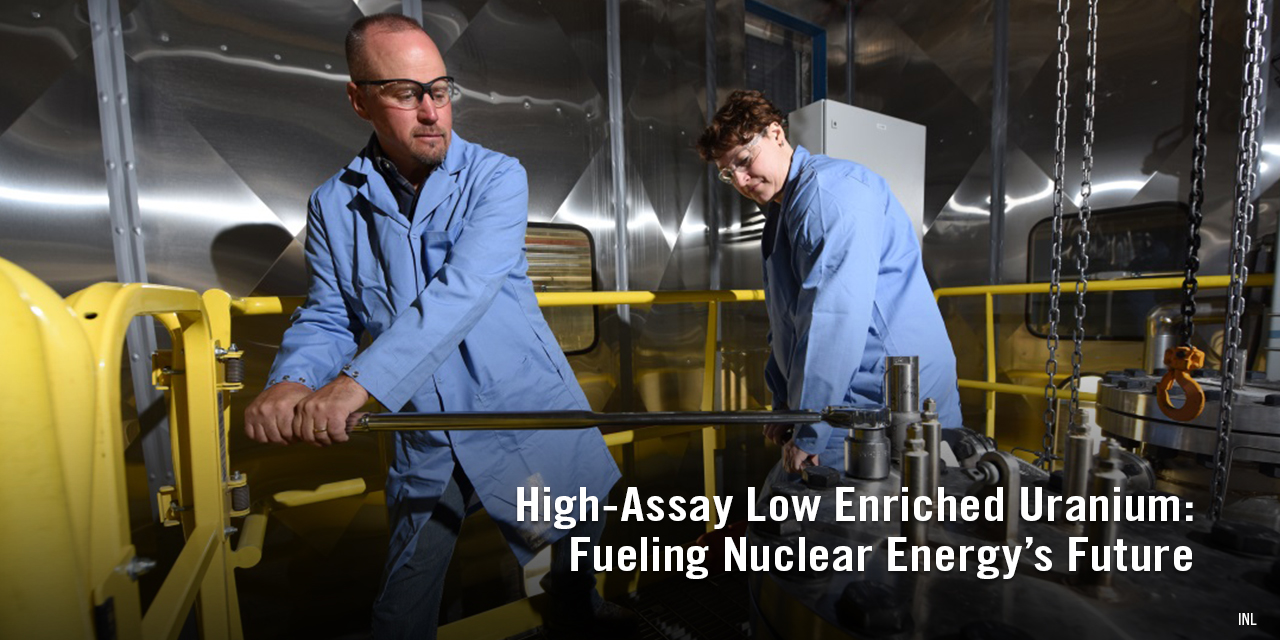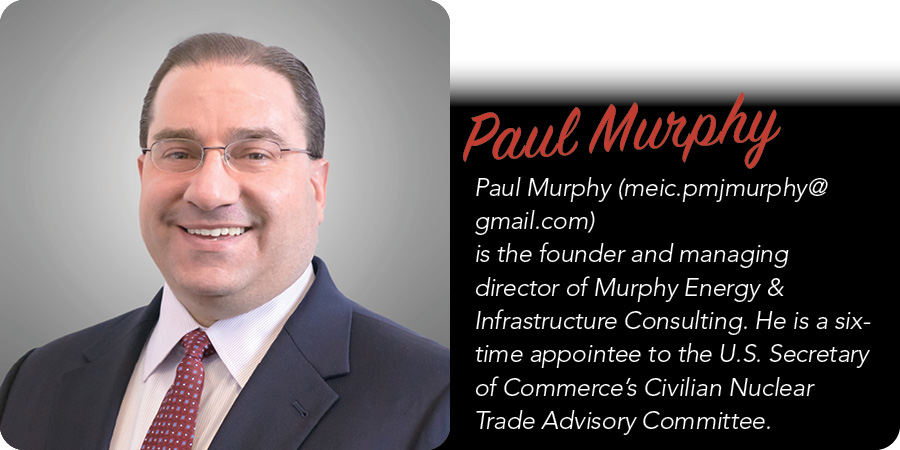Energy Northwest’s Columbia Generating Station, in Richland, Wash. (Photo: Energy Northwest)
Energy Northwest, owner and operator of Columbia Generating Station in Richland, Wash., recently signed a memorandum of understanding with nuclear technology firm Curio Solutions regarding Curio’s NuCycle nuclear waste recycling process.
Columbia is the Northwest’s only operating nuclear power plant, consisting of one 1,207-MWe boiling water reactor. There are currently 54 concrete and steel casks on site, holding the spent fuel produced by the reactor since it began commercial operation in 1984.
The world's first AP1000 reactors to enter operation, Sanmen units 1 and 2, in China. (Image: Westinghouse Inc.)
Westinghouse Electric Company and South Korea’s Hyundai Engineering & Construction have signed an agreement to “jointly participate in global AP1000 plant opportunities,” the Pennsylvania-based nuclear technology firm announced on May 24.
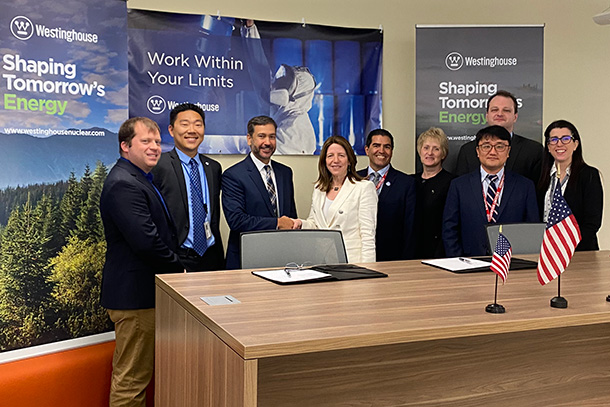
Representatives from Westinghouse and Penn State met at Westinghouse headquarters to sign a memorandum of understanding and enter a partnership focused on researching and developing microreactors. From left: Jason Beebe, director of the global transformation office at Westinghouse; Michael Valore, senior director of advance reactor commercialization, Westinghouse; Mike Shaqqo, senior vice president of advanced reactors, Westinghouse; Lora Weiss, senior vice president for research at Penn State; Jean Paul Allain, head of the Ken and Mary Alice Lindquist Department of Nuclear Engineering at Penn State; Geanie Umberger, associate vice president for research and director of industry research collaborations at Penn State; Saya Lee, assistant professor of nuclear engineering; Elia Merzari (back), associate professor of nuclear engineering; and Hilary Ruby, director of transformation for the Americas Operating Plant Services Business Unit at Westinghouse. (Photo: Westinghouse)
Conceptual site layout for the VTR, as shown in the Final EIS. (Image: DOE-NE)
The Versatile Test Reactor, a custom-designed sodium-cooled fast neutron spectrum test reactor, is one step closer to its goal of providing data to accelerate research, development, and demonstration of diverse advanced reactor designs. The Department of Energy released the Final Versatile Test Reactor Environmental Impact Statement (Final VTR EIS) on May 13, and 30 days after its anticipated May 20 publication in the Federal Register, the DOE will issue a Record of Decision on the project.
Rendition of a VOYGR plant layout. (Image: NuScale)
Universities are places where professionals, experts, and students come together to teach and learn, to conduct and disseminate research, and to dream and explore. Universities have a long history of technological innovation and development. It should therefore come as no surprise that institutes of higher education have been an integral part of the recent explosion of innovation within the advanced nuclear reactor community. Universities have not only powered workforce and technology development, but in a number of cases, they have served as the actual birthplaces of today’s advanced reactor designs.
Pictured from left to right: John Tappert, NRC; Jonathan Rowley, NRC; Jacob Zimmerman, NRC; Matthew Bartlett, NRC; Tim Beville, DOE; Jennifer Wheeler, TRISO-X; John Lubinski, NRC; Pete Pappano, TRISO-X; Jill Caverly, NRC; and Shana Helton, NRC. (Photo: X-energy)
Ingots of HALEU derived from pyroprocessing of EBR-II driver fuel at Idaho National Laboratory. (Photo: INL)
On April 7, U.S. Sen. John Barrasso (R., Wyo.), ranking member of the Senate Committee on Energy and Natural Resources, introduced the Fueling Our Nuclear Future Act of 2022. The bill would ensure a domestic supply of high-assay low-enriched uranium (HALEU) for advanced nuclear reactors by directing the Department of Energy to prioritize establishing a domestic HALEU enrichment capability and to use enriched uranium held by the DOE and the National Nuclear Security Administration to fuel advanced reactor demonstrations until U.S. commercial enrichment is available. The bill explicitly excludes uranium sourced or processed by any entity owned or controlled by the governments of Russia and China.





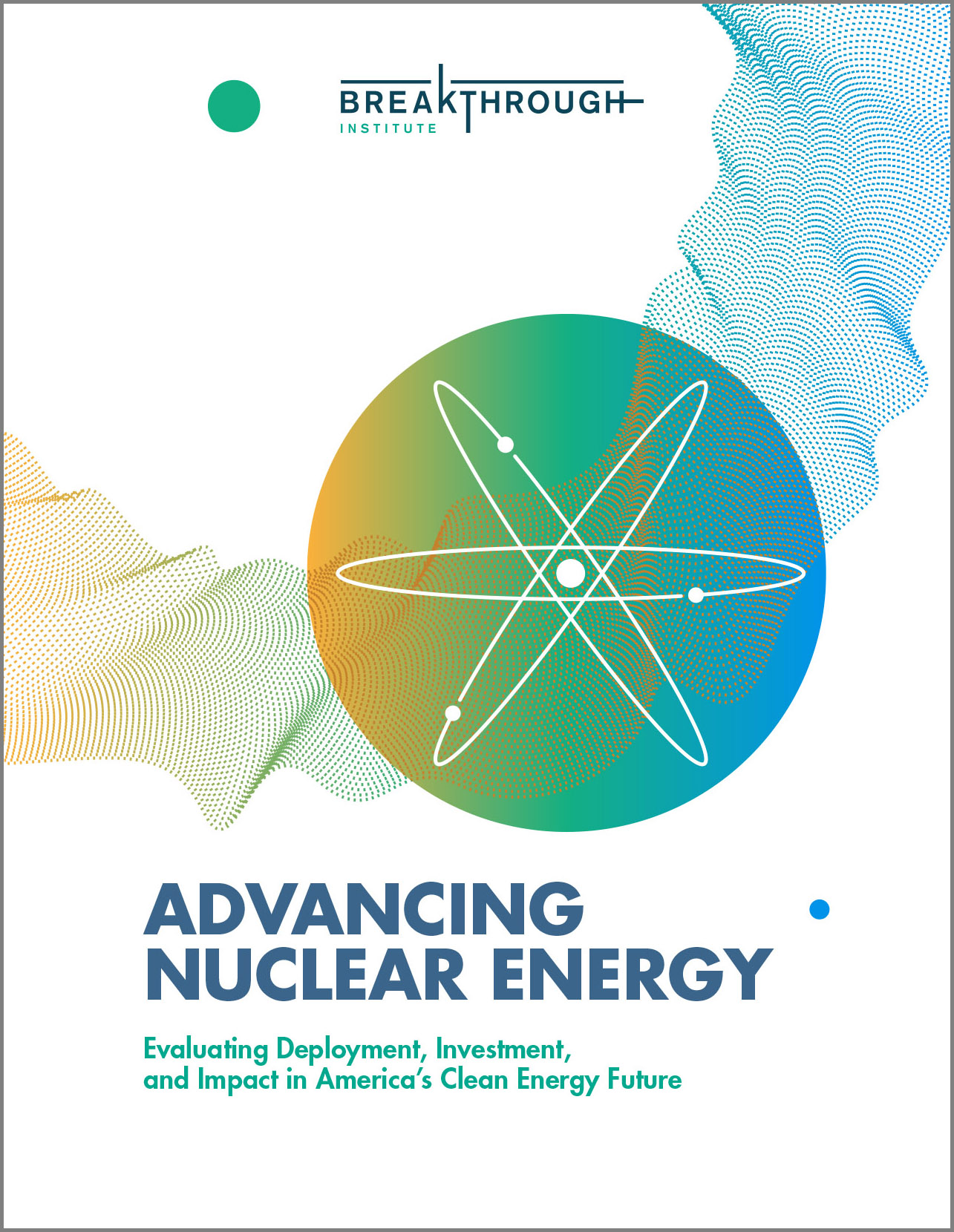 With the proper investment and policy support, advanced nuclear energy has the potential to become a key component of a future U.S. clean energy system, a new report from Berkeley, Calif.’s, Breakthrough Institute finds.
With the proper investment and policy support, advanced nuclear energy has the potential to become a key component of a future U.S. clean energy system, a new report from Berkeley, Calif.’s, Breakthrough Institute finds.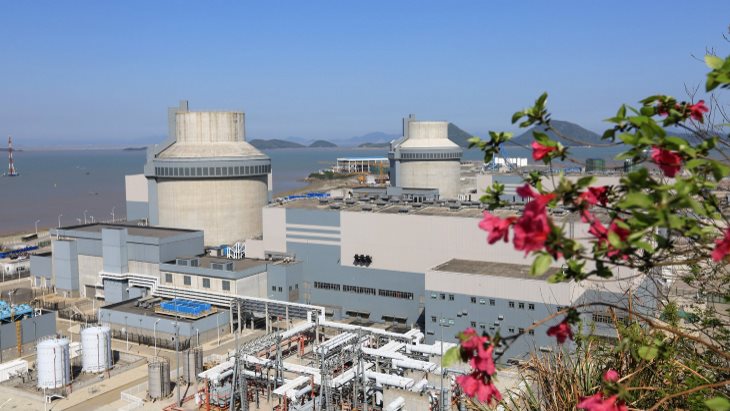-2018.jpg)






